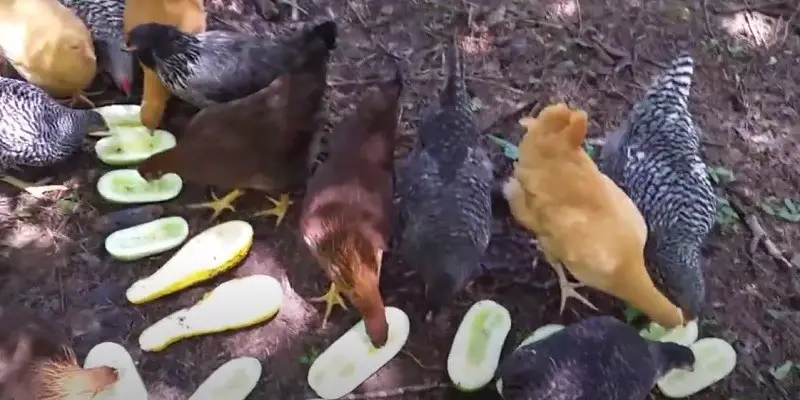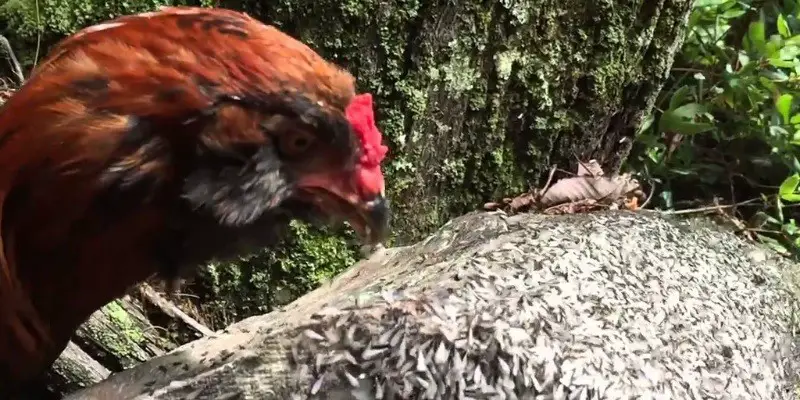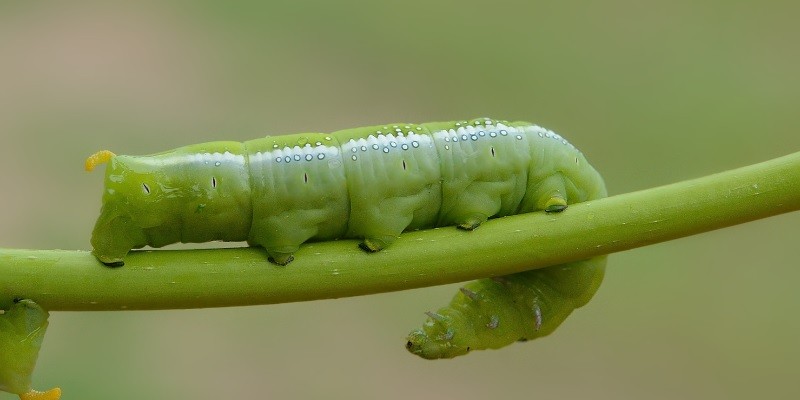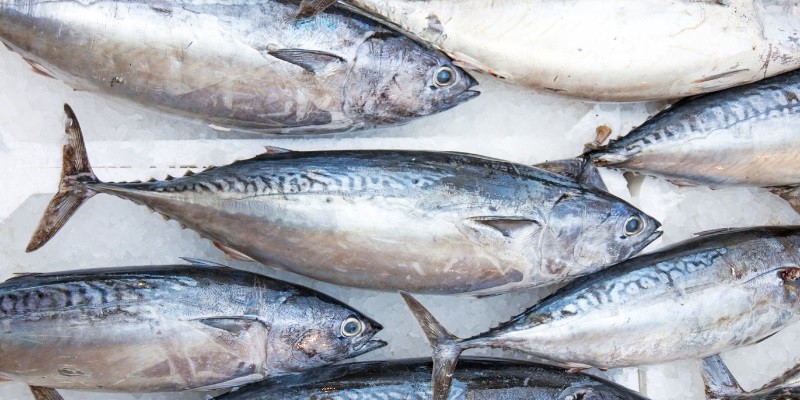Chickens can eat cucumbers, including the skin and seeds, as they are rich in nutrients and antioxidants. However, it’s important to wash the cucumber thoroughly before feeding it to the chickens to remove any pesticides.
Cucumbers are a popular and refreshing vegetable that many humans enjoy eating. But can chickens eat cucumbers too? If you have a flock of chickens and are wondering whether cucumbers are a safe and healthy addition to their diet, you’re in the right place.
We will explore whether chickens can eat cucumbers, the benefits of feeding cucumbers to chickens, and how to prepare them for your feathered friends. So, let’s dive in and find out if cucumbers are a suitable food for chickens!
Evaluating Chicken Diet Choices
Chickens can eat cucumbers, including the peel and seeds. Cucumbers are a nutritious treat for chickens and can be fed in moderation as part of a well-balanced diet.
Relevance Of Cucumbers In Poultry Nutrition
Cucumbers are a popular vegetable and most of us have them in our kitchens. But can chickens eat cucumbers? The answer is yes! Cucumbers can be a nutritious addition to a chicken’s diet. They are low in calories and high in water content, making them a refreshing treat for your feathered friends. Cucumbers also contain vitamins A, C, and K, as well as minerals like potassium and magnesium.
Balancing Treats And Main Feed
While cucumbers can provide some nutritional benefits to chickens, it’s important to remember that they should be treated as just that – treats. Chickens require a balanced diet that includes a main feed specifically formulated for their nutritional needs. Treats, including cucumbers, should only make up a small portion of their overall diet. Too many treats can lead to nutritional imbalances and weight gain, which can be detrimental to their health.
Common Misconceptions About Cucumbers And Poultry
There are some common misconceptions about feeding cucumbers to chickens. One of these misconceptions is that cucumber seeds are harmful to chickens. However, cucumber seeds are actually safe for chickens to eat and can provide additional nutrients. Another misconception is that the peel of the cucumber should be removed before feeding it to chickens. In reality, the peel is also safe for chickens to consume, as long as it is thoroughly washed to remove any dirt or pesticide residue.
While cucumbers can be a healthy treat for chickens, it’s important to feed them in moderation and ensure that their main diet is well-balanced. By understanding the relevance of cucumbers in poultry nutrition, balancing treats and main feed, and dispelling common misconceptions, you can ensure that your chickens enjoy the occasional cucumber treat without compromising their overall health and well-being.
Can Chickens Eat Cucumbers Safely?
Cucumbers are a refreshing and hydrating summer vegetable that many of us enjoy incorporating into our diets. But what about our feathered friends? Can chickens eat cucumbers? In short, the answer is yes! Chickens can eat cucumbers safely and enjoy the numerous health benefits that they offer.
Nutritional Content Of Cucumbers
Cucumbers are low in calories and high in water content, making them a hydrating treat for chickens during hot summer months. They also contain important vitamins and minerals that can contribute to a balanced diet for your flock.
Here’s a breakdown of the nutritional content in cucumbers:
| Nutrient | Amount per 100g |
|---|---|
| Water | 95.2g |
| Protein | 0.7g |
| Fat | 0.1g |
| Carbohydrates | 3.6g |
| Fiber | 0.5g |
| Vitamin C | 2.8mg |
| Vitamin K | 16.4µg |
| Potassium | 147mg |
Potential Hazards Of Cucumbers For Chickens
While cucumbers are generally safe for chickens to consume, there are a few things to be cautious of. One potential hazard is the presence of pesticides or other chemicals on the cucumber’s skin. It’s important to thoroughly wash cucumbers before offering them to your chickens to ensure they are free of any harmful substances.
Additionally, some chickens may have a more sensitive digestive system and may experience digestive upset if they consume large quantities of cucumbers. It’s always best to introduce new foods gradually and in moderation to observe how your chickens’ bodies react.
How Cucumbers Fit Into A Healthy Chicken Diet
Cucumbers can be a valuable addition to a healthy chicken diet when fed in moderation. They provide hydration, essential vitamins, and minerals without adding excessive calories. You can offer cucumbers to your chickens as a refreshing treat or include them in homemade chicken salads or vegetable medleys.
When feeding cucumbers to your chickens, it’s important to remember a few guidelines:
- Wash cucumbers thoroughly to remove any potential chemical residue.
- Remove the seeds if you prefer, although chickens can eat them without any harm.
- Offer cucumbers as part of a varied diet, along with other vegetables, grains, and protein sources.
By incorporating cucumbers into your chickens’ diet, you can provide them with a tasty and nutrient-rich treat that supports their overall health and well-being.
Best Practices For Feeding Cucumbers
Chickens can safely eat cucumbers, including the peel and the seeds, as they are packed with essential nutrients. Cucumbers can make a healthy snack for chickens when given in moderation alongside other greens and vegetables like lettuce, beets, carrots, and pumpkins.
Preparing Cucumbers For Chicken Consumption
Before feeding cucumbers to your chickens, it’s important to prepare them properly to ensure your chickens can easily consume them. Follow these steps to prepare cucumbers for chicken consumption:
- Wash the cucumbers thoroughly to remove any dirt or pesticides.
- Remove the wax coating, if present, by gently scrubbing the cucumbers or peeling the skin.
- Slice the cucumbers into small, bite-sized pieces to make them more manageable for your chickens to eat.
- Alternatively, you can grate the cucumbers to create a more easily digestible texture for your chickens.
Appropriate Serving Sizes And Frequency
When it comes to feeding cucumbers to your chickens, it’s important to consider appropriate serving sizes and frequency to ensure a balanced diet. Here are some guidelines to follow:
- Offer cucumbers as a treat or supplement to your chickens’ regular diet. They should not make up the majority of their food intake.
- Start by offering a small amount of cucumbers (around 1-2 slices or a tablespoon of grated cucumber) and observe your chickens’ response.
- If your chickens enjoy the cucumbers and tolerate them well without any digestive issues, you can gradually increase the serving size.
- Offer cucumbers 2-3 times a week as part of a varied diet that includes other vegetables, grains, and protein sources.
Observing Chicken Behavior And Dietary Reactions
When introducing cucumbers or any new food to your chickens, it’s important to observe their behavior and dietary reactions to ensure they are tolerating it well. Here are some things to look out for:
- Watch how your chickens react to the cucumbers. If they show enthusiasm and eagerly peck at the slices, it’s a good sign that they enjoy them.
- Monitor your chickens’ digestion. If they experience loose stools or digestive issues after consuming cucumbers, it may indicate that they are not tolerating them well.
- Keep an eye on your chickens’ overall health and weight. If they maintain a healthy body condition and continue to exhibit normal behavior, it suggests that cucumbers are a suitable addition to their diet.
Remember, each chicken is unique, and some may have individual preferences or sensitivities. By observing their behavior and dietary reactions, you can determine whether cucumbers are a beneficial and well-tolerated food for your flock.
Integrating Cucumbers Into Chicken Diets
Cucumbers are a safe and healthy addition to a chicken’s diet, providing essential nutrients without any negative effects. Chickens can eat all parts of the cucumber, including the seeds, and it can be a great addition to their vegetable options.
Varied Diet Essentials For Poultry Well-being
When it comes to keeping your backyard chickens healthy and happy, providing them with a varied and balanced diet is essential. Offering a mix of grains, proteins, fruits, and vegetables ensures that your feathered friends receive the necessary nutrients for optimal health. Incorporating cucumbers into their diet can be a refreshing and nutritious addition.
Complementary Foods And Cucumbers
Chickens can eat all parts of the cucumber, including the peel, flesh, and seeds. Cucumbers are low in calories and high in water content, making them a hydrating snack for your flock, especially during hot summer months. They are also a good source of vitamins such as A, C, and K, as well as minerals like potassium and magnesium.
Introducing cucumbers to your chickens’ diet can be as simple as slicing them into small pieces and offering them as a treat or mixing them in with their regular feed. You can also freeze cucumber slices to create a cool and refreshing snack that can help in combating heat stress during scorching weather.
Monitoring Health Benefits And Signs Of Trouble
Observing your chickens’ health and behavior is crucial in ensuring the well-being and proper digestion of cucumbers. While cucumbers are generally safe for chickens to consume, it’s important to monitor their intake and make sure it’s part of a balanced diet.
Here are some signs to watch out for:
- Too much cucumber consumption can cause loose stools or diarrhea. Monitor their droppings regularly to ensure they maintain healthy digestion.
- If you notice any signs of digestive upset, reduce the amount of cucumbers given or discontinue feeding them temporarily.
- Like any new food, introduce cucumbers gradually to avoid any adverse reactions.
Remember, as with any food, moderation is key. While cucumbers offer several health benefits for your chickens, they should be part of a diverse diet that includes other vegetables, grains, and proteins.
Integrating cucumbers into your chickens’ diet provides them with a refreshing and nutritious treat. By monitoring their health and offering cucumbers in moderation, you can promote the well-being and happiness of your feathered friends. Enjoy watching your chickens peck and delight in this hydrating and vitamin-packed addition to their meals!

Credit: the-chicken-chick.com
Frequently Asked Questions On Can Chickens Eat Cucumbers?
What Vegetables Chickens Cannot Eat?
Chickens should avoid eating certain vegetables: avocado skins, raw or dried beans, raw green potato skins, rhubarb, tomato plants, chocolate, apple seeds, and apricot pits and leaves.
Can Chickens Eat Lettuce And Cucumber?
Yes, chickens can eat lettuce and cucumber. They are safe and healthy options for chickens to consume.
Can I Eat Cucumber Peel?
Yes, you can eat cucumber peel. It adds fiber and vitamin A to your diet. Just make sure to wash the cucumber first. Avoid ones that are yellow, puffy, or have sunk-in areas, bulges, or wrinkled ends.
Why Can’t Chickens Eat Tomatoes?
Chickens can’t eat tomatoes because unripe tomatoes contain solanine, a harmful compound. The leaves and stems of tomatoes are also part of the nightshade family and contain the same poisonous substance.
Can Chickens Eat Cucumbers?
Chickens can definitely eat cucumbers! They enjoy the crunchy texture and the refreshing taste. Just make sure to remove the seeds before feeding them to your chickens.
Are Cucumber Peels Safe For Chickens?
Yes, chickens can eat cucumber peels. In fact, the peels are the most nutrient-dense part of the cucumber and contain a lot of beta-carotene, which is a powerful antioxidant.
Conclusion
Chickens can indeed eat cucumbers, and it’s a great addition to their diet. Cucumbers are low in calories and high in water content, making them a hydrating and refreshing treat for your feathered friends. Just make sure to wash them thoroughly before feeding.
Remember, moderation is key, and always introduce new foods gradually to avoid any digestive issues. Treat your chickens to some cucumber slices and watch them enjoy this nutritious snack!
Last Updated on April 23, 2025 by Pauline G. Carter




